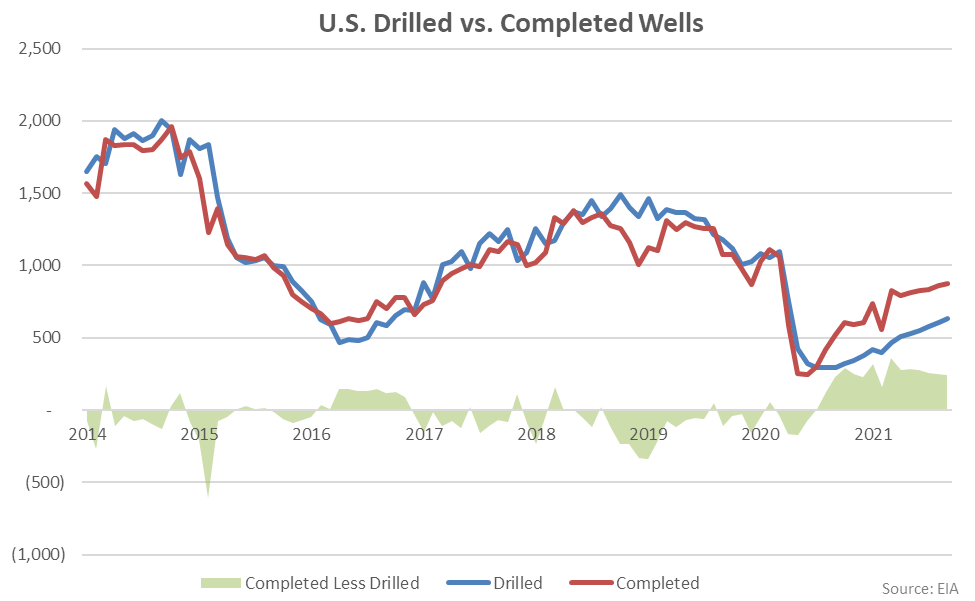EIA Drilling Productivity Report Update – Oct ’21
According to the EIA’s most recent Drilling Productivity Report, U.S. oil output is expected to rebound to a 19 month high level throughout the month of November. The Drilling Productivity Report uses recent data on the total number of drilling rigs in operation, estimates of drilling productivity, and estimated changes in production from existing wells to provide estimated changes in oil production for the seven key regions shown below.
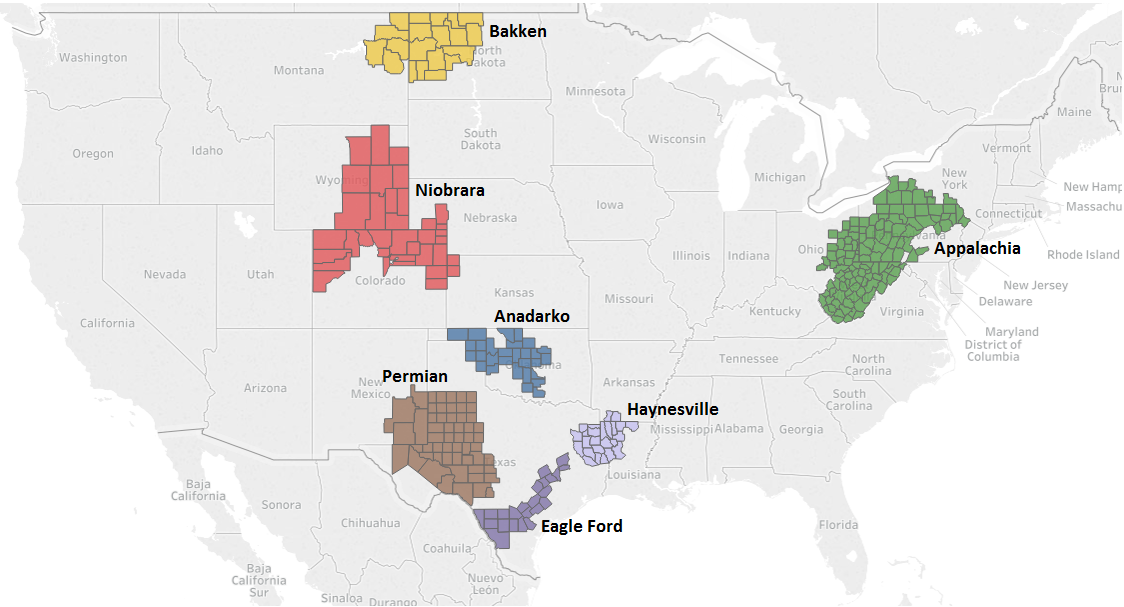
Oct ’21 production levels were revised 7,400 barrels per day (bpd), or 0.1%, above levels previously forecasted, finishing 67,800 bpd above previous month levels. Nov ’21 production levels are expected to increase by an additional 76,000 bpd, or 0.9%, from the Oct ’21 revised production levels, reaching a 19 month high level.
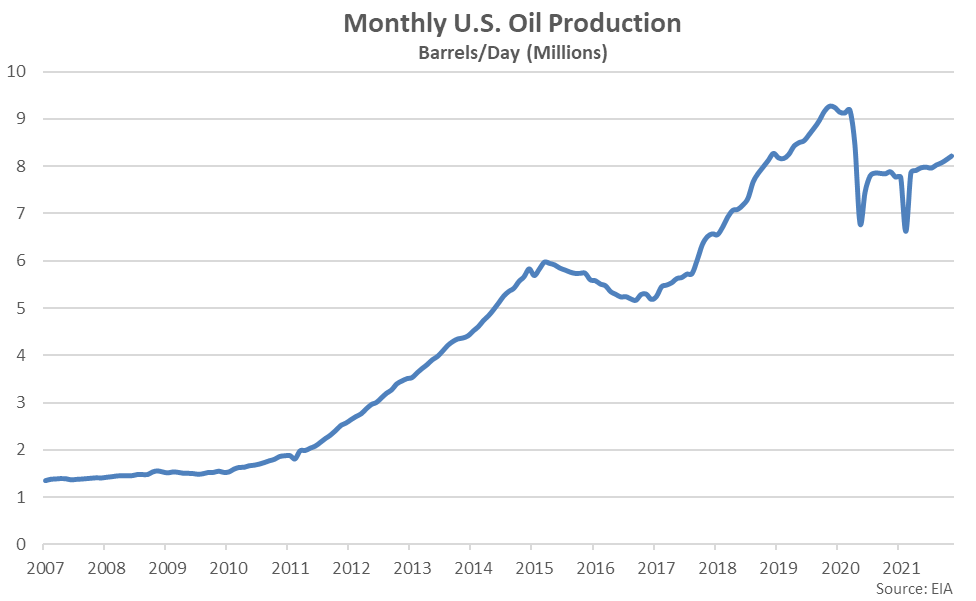
The Nov ’21 projected month-over-month increase in oil production would be the eighth experienced throughout the past nine months and the largest experienced throughout the past eight months. A pandemic related record large month-over-month decline in oil production was experienced throughout May 2020, while Feb ’21 production volumes were also reduced significantly due to deep freeze related slowdowns.
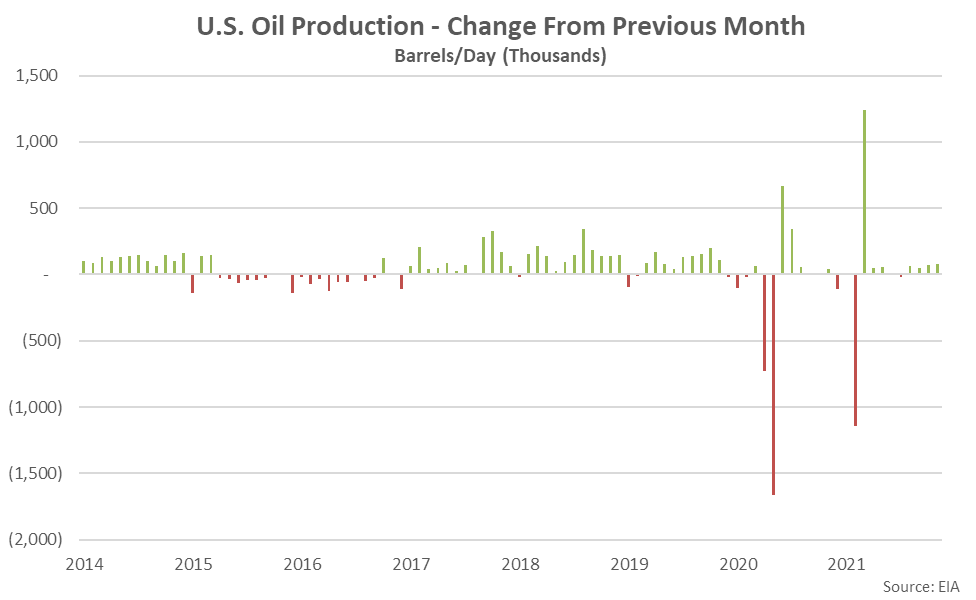
Oil production is expected to increase most significantly from the previous month within the Permian (+61,600 bpd) region, followed by the Niobrara (+7,700 bpd) and Bakken (+5,600 bpd) regions. The Permian region is expected to account for over 80% of the total projected increase in production levels throughout the month. Oil production is expected to decline most significantly from the previous month within the Anadarko (-900 bpd) region.
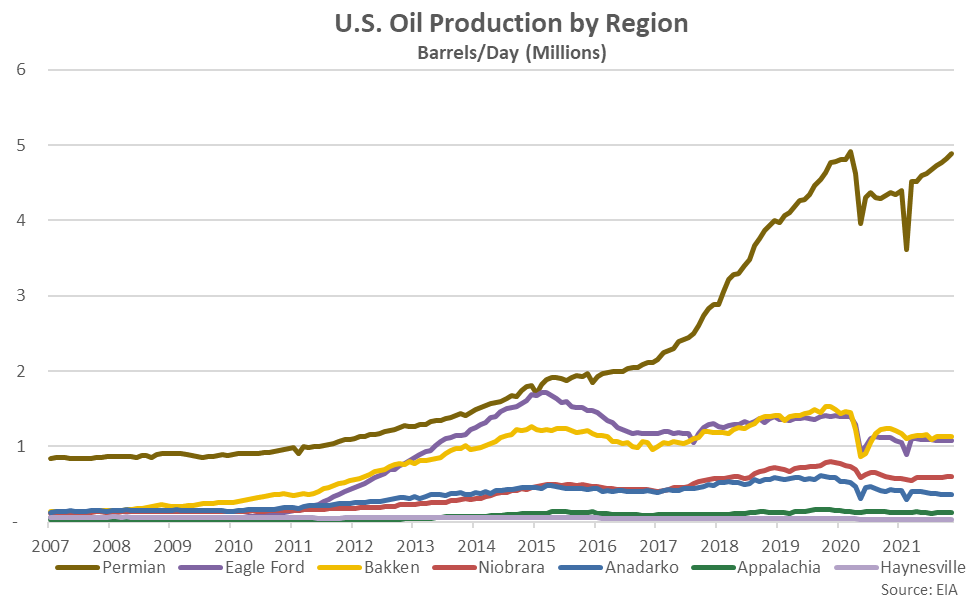
Nov ’21 oil production is expected to remain higher on a YOY basis for the seventh consecutive month, finishing 4.2% above previous year levels. Oil production had finished lower on a YOY basis over 12 consecutive months through Apr ’21. Nov ’21 oil production volumes are expected to remain 11.3% below pre-pandemic seasonal levels, however.
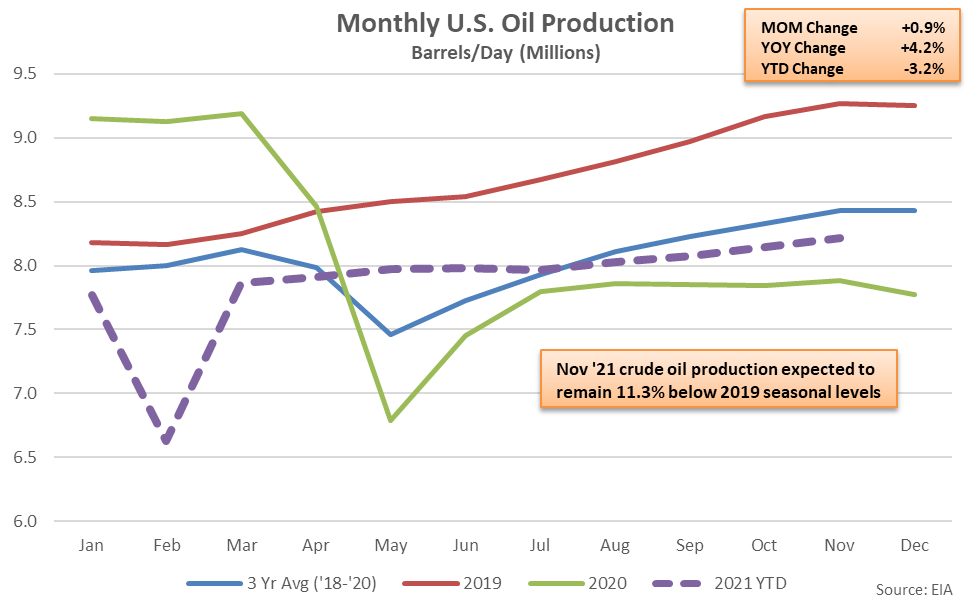
Sep ’21 U.S. drilled-but-uncompleted (DUC) wells declined 4.3% from the previous month, reaching a four and a half year low level, overall. DUC wells, which have been drilled by producers but have not yet been made ready for production, have been compiled since Dec ’13. The monthly decline in DUC wells was the 15th experienced in a row.
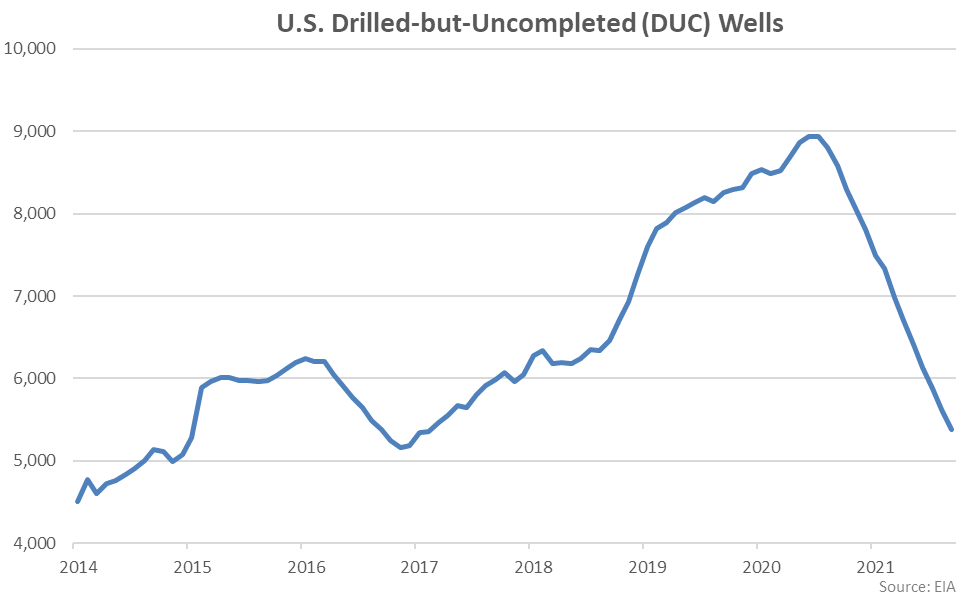
Permian DUC wells declined most significantly from the previous month throughout Sep ’21, followed by Eagle Ford and Bakken DUC wells. Eagle Ford, Appalachia, Bakken and Niobrara DUC wells all declined to the lowest levels on record.
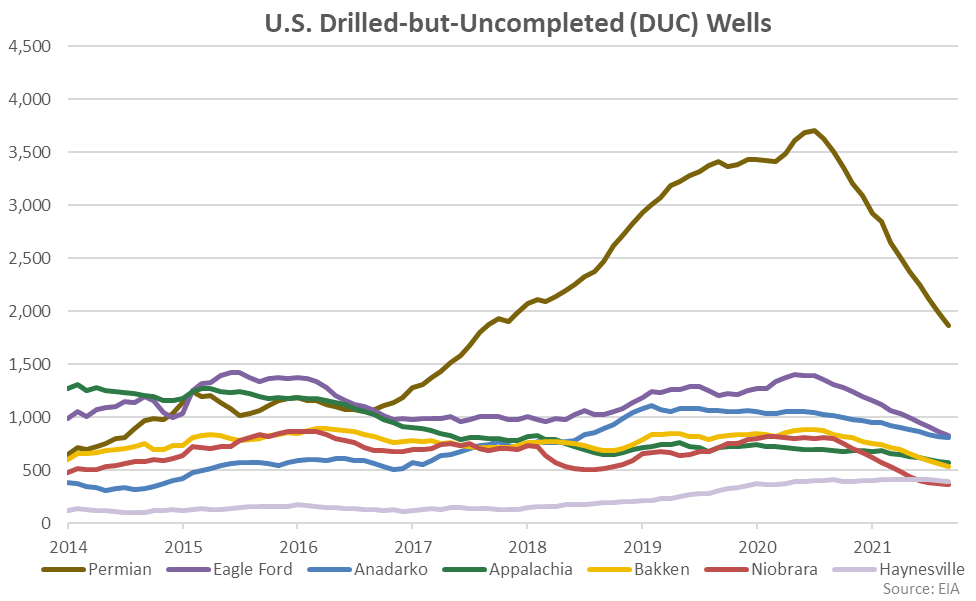
Well completions have outpaced new well drilling over 15 consecutive months through Sep ’21. The deviation between completed and drilled wells reached a seven month low level throughout the month of September, however.
